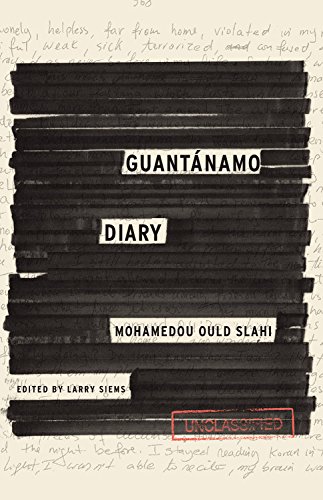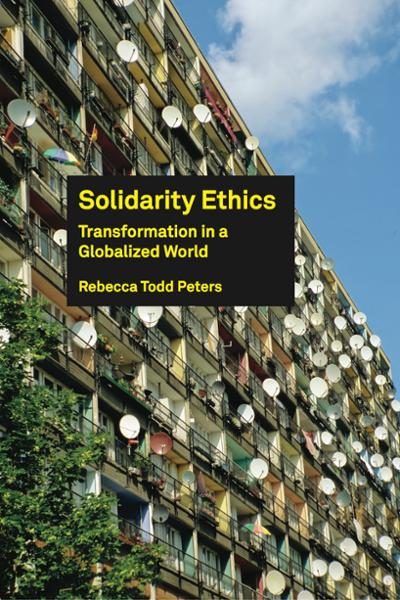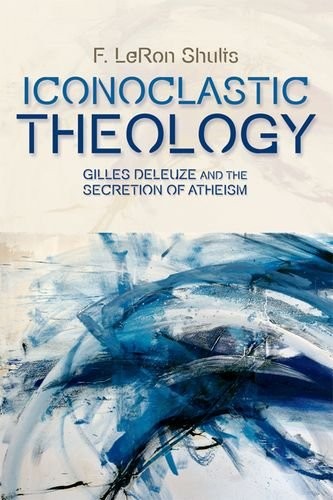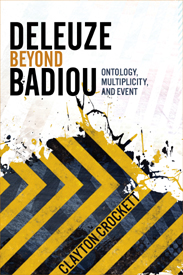
The discourse of terrorism is itself an ideology linked to conceptions of truth and identity, life and death, law and justice. But there is also a terror that exists in silence, a terror that bears no name because the life it destroys is not even recognized as having lived.

. . . We live in an age of terror, but not because we have been terrorized by the Other. Rather, the terrorism we recognize is the consequence of an a priori distinction between lives that matter and lives that don’t. Slahi, confined at Guantanamo since January 2000 without charge, represents the figure of terror.

I recently finished reading Willie James Jennings’s earth-shattering book, The Christian Imagination: Theology and the Origins of Race. While Jennings’s primary aim is to drastically reorient our theological approaches to race and racism, his project poses much broader challenges to conventional theological methodology. He insists that traditional western theologians who have rightly been concerned with questions of orthodoxy and intellectual edification have nevertheless failed to recognize how land, language, bodies, and “literary space” informs theological construction and evaluation.

A 2005 New York Times poll discovered that 80 percent of US citizens believe that it is indeed possible to pull yourself up by your own bootstraps (quoted on p. 70). In her new book Solidarity Ethics, Rebecca Todd Peters argues that it is this belief in self-sufficiency that, in part, underwrites the structural issues of oppression and inequality of our neoliberal globalized world. Global structural evils stand on the values and worldview of the privileged. And the benefits of privilege are so deeply woven into the fabric of our quotidian realities that it requires a concrete change in perspective—a conversion, in fact—to recognize the problems this privilege also creates for others.

In his new book, LeRon Shults gives us a very helpful tool to help evaluate religion and politics in the context of Deleuzian “theology” in what he calls the “bio-cultural study of religion, ” which claims that “religious phenomena can be explained by the evolution of cognitive processes [Attributions] that over-detect human-like forms and coalitional process [Social] that over-protect socially inscribed norms.”

Clayton Crockett’s Deleuze Beyond Badiou is more than a commentary on Badiou’s reading of Deleuze or a defense of Deleuze. It is, rather, a transdisciplinary work that crosses the domains of theology, philosophy, and politics through a reading of the relationship between Deleuze and Badiou. Crockett’s goal, however, is not primarily descriptive but constructive, in that he uses the relationship between the two philosophers as a means for thinking otherwise.
Viewed in the light of liberal commitments, Calvin’s chief error appears to be his presumption that the civil magistrate has not only the right, but the duty, to use his coercive office to enforce “piety.” As Calvin argues, the political ruler must recognize his duty “to cherish and protect the outward worship of God, to defend sound doctrine of piety and the position of the church” and to “form our social behavior to civil righteousness,” thus promoting social peace (Institutes 4.20.2). To liberals, of course, this appears dangerously intrusive.
In recent years, a number of theologians and legal historians have argued that the early modern Reformed tradition was a significant source for the development of various liberal doctrines. Scholars such as Nicholas Wolterstorff, David Little, and John Witte have traced modern doctrines of individual rights and the separation of church and state back to various Calvinist thinkers. Witte has been the most prolific, writing dozens of articles and several books on the topic over the past couple decades.

The crucial thread in Perry’s narrative has been that of the “turn to loyalty”: where Rawlsian liberalism can dismiss the problem of religious loyalty and imagine that religious and political loyalties ought by their very nature never to conflict, Locke recognized clearly that such conflicts do happen, and such loyalties must be carefully attended to if they are to be harmonized. Accordingly, he provides not merely a solution of political theory, but a solution of political theology that attempts to establish, from within Christianity, the proper nature of Christian loyalty. Unfortunately, most interlocutors today simply no longer recognize the tension but persist in a naïve conviction that civil loyalty and religious loyalty ought to pose no threat to one another in modern America…
